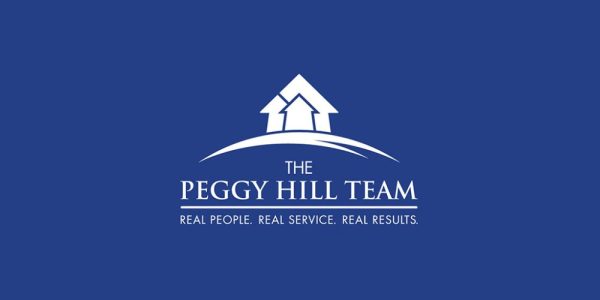
This Barrie 360 article is brought to you by Della Dwyer.
Are you looking to update those outdated bathrooms, upgrade your kitchen to a gourmet space or give your backyard a facelift? These renovations are all great ways to improve your quality of life in the home you love and improve your property value.
But they can also come with a big price tag.
The good news is, there are plenty of ways to finance your home renovations. Let’s take a look at some of the options:
8 ways to finance your home renovations
Renovations can quickly add up, but there are several financing options available to help you achieve your dream space. Let's explore the different ways you can fund your next home improvement project.
1. Tapping into your home’s equity
One of the most common ways to fund a home renovation is by using the equity you've built up in your property. Equity is essentially the difference between your home's current market value and what you owe on your mortgage. There are two primary ways to access this money:
- Home Equity Line of Credit (HELOC): Think of a HELOC as a credit card for your home. It offers flexible access to funds as you need them, and you only pay interest on the amount you borrow. HELOCs are great for larger, ongoing projects where you might not need all the money upfront.
- Home Equity Loan (aka Second Mortgage): This is a lump sum loan based on your home's equity. You get the money all at once and repay it with fixed monthly payments over a set term. If you know exactly how much you need for your project, a home equity loan can be a good option.
It’s important to note that while using your home's equity can be a great way to finance home renovations, it also means your home is collateral for the loan. If you can't repay the loan, you could lose your home.
Pros:
- Potentially lower interest rates than other options.
- Can access a large amount of money.
- Interest on home equity loans may be tax-deductible.
Cons:
- You're putting your home at risk if you can't repay the loan.
- Administrative costs can be high.
- You may have to change the terms of your original mortgage.
RELATED: 12 tips to help with your upcoming mortgage renewal ...
2. Refinance your mortgage
If you've got a good credit score and interest rates are lower than when you first got your mortgage, refinancing could be a smart move. By refinancing, you're essentially replacing your old mortgage with a new one. The difference in the loan amounts can be used for your renovation. If you are able to obtain lower monthly mortgage payments, this can also free up cash flow to cover renovation costs or other expenses.
Remember, when refinancing consider the overall cost of your new mortgage, and not just the interest rate, to ensure it's a financially sound decision.
Pros:
- Potentially lower interest rate.
- Can access a large amount of money.
- May lower your monthly mortgage payment.
Cons:
- Closing costs can be high.
- You'll need to re-qualify for a new mortgage.
- It could take time to complete the refinancing process.
3. Reverse mortgage
Available to homeowners aged 55 or older, reverse mortgages allow you to borrow against your home's equity while continuing to live in it. Unlike HELOCs or a second mortgage, you don’t need to make payments until the loan is due, which is generally when the home is sold or the homeowner moves out.
Pros:
- Provides additional income for retirees
- Allows homeowners to age in place
- No monthly mortgage payments
Cons:
- Higher interest rates compared to other options
- Growing debt over time
- Potential impact on inheritance
4. Personal loans and lines of credit
For smaller renovations, a personal loan or line of credit might be sufficient. Personal loans provide a lump sum that you repay with fixed monthly payments. Lines of credit offer flexible access to funds, similar to a HELOC but typically with higher interest rates.
While these options might be quicker and easier to obtain than home equity loans or refinancing, they usually come with higher interest rates. So, weigh the pros and cons carefully before making a decision.
Pros:
- Quick and easy to obtain.
- No collateral required.
Cons:
- Typically higher interest rates than home equity loans.
- May have shorter repayment terms.
5. Credit cards
Credit cards can be a convenient way to finance small home renovations, especially if you can pay off the balance quickly. However, they typically come with high-interest rates, so it's essential to use them responsibly. If you carry a balance, the interest can quickly add up.
If using a credit card, consider researching different options to see if any of the stores you frequent offer simplified payments options or no-interest periods for little to no additional fees.
Pros:
- Quick and easy to use.
- Simple application process if you need a new credit card. (No application process if you already have one you can use.)
Cons:
- High-interest rates.
- Can lead to debt if not managed carefully.
RELATED: 19 ways to pay off your debt faster ...
6. Government grants and incentives
Don't forget to explore government grants and incentives that might be available for your renovation project.
Many governments offer financial assistance for energy-efficient upgrades or accessibility improvements, such as the Canada Greener Homes Loan. Research federal, provincial, and municipal programs to see if you qualify.
Pros:
- Potential for free or interest-free money.
- Can help you save on energy costs.
- May increase your home's value.
Cons:
- Competition for grants can be high.
- Eligibility requirements can be strict.
7. Saving up
If your renovation plans aren't urgent, saving up might be the most straightforward option. Create a dedicated savings account and set aside a portion of your income regularly. This approach eliminates interest charges and gives you complete control over your project's timeline.
Pros:
- No interest to pay.
- No risk of debt.
Cons:
- Can take a long time to save up.
- You may miss out on opportunities to invest your money.
8. Work with a mortgage broker
Navigating the world of home renovation financing can be overwhelming. Mortgage brokers can help you compare different loan options, find the best rates, and guide you through the application process.
In addition, a mortgage broker has access to a wide range of lenders, so they can find the perfect financing solution for your needs. They'll also handle the paperwork and deal with the lenders on your behalf, saving you time and stress.
Pros:
- Can help you find the best financing option for your needs.
- Can save you time and stress.
- Provides expert advice.
Cons:
- May charge a fee for their services.
- Not all mortgage brokers are created equal.
How to finance your next renovation
By carefully evaluating these options and considering your financial situation, you can find the best way to finance your dream home renovation.












